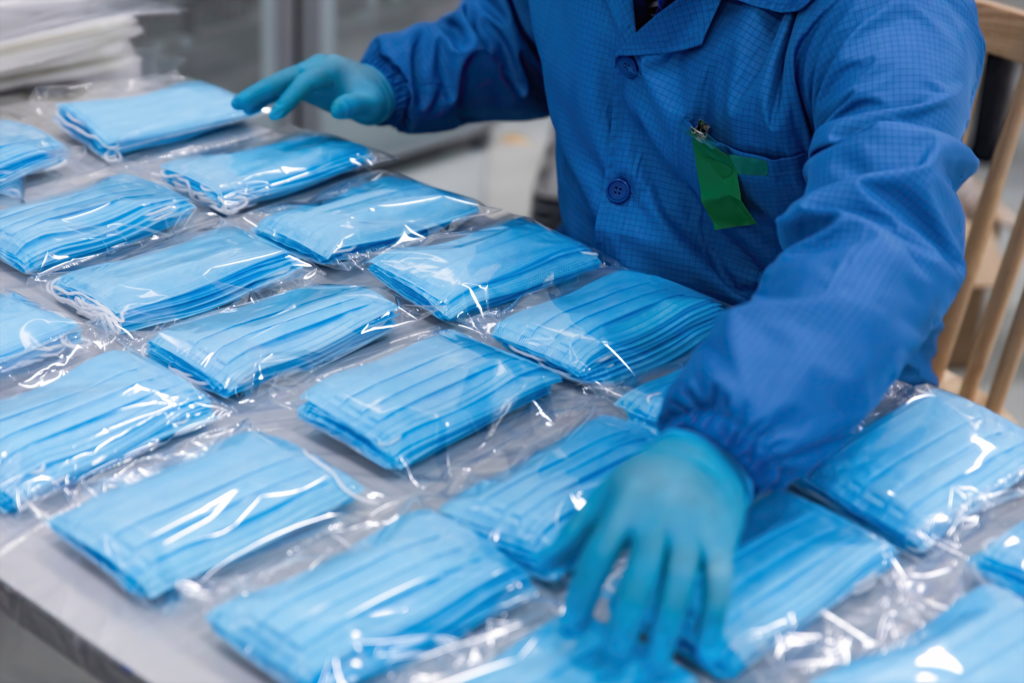
Seven states in the northeast are working to form a new consortium for the purchase of $5 billion in medical equipment for a regional supply chain during the COVID-19 pandemic.
Connecticut, Delaware, Massachusetts, New Jersey, New York, Pennsylvania and Rhode Island governors announced the multi-state agreement last month, in which they will assess the region’s needs and demands for personal protective equipment, testing kits, and medical gear in order to bring costs down and create overall stability for the supply chain in the area.
“Our states should never be in a position where we are actively competing against each other for life-saving resources,” said Phil Murphy, Governor of New Jersey. “By working together across the region, we can obtain critical supplies as we begin the process to restart our economies, while also saving money for our taxpayers.”
These states will also be coordinating PPE inventory policies within each state’s health care system so that they are properly prepared in the case of a second wave of coronavirus. States will also look into new policies regarding necessary supplies for first responders and nonprofit organizations.
“We’re doing regional planning now on the reopening because every state is linked to every other state. If we do something in New York, it affects New Jersey, Connecticut, Delaware, etc.” said New York Governor Andrew Cuomo.
In the public briefing, Cuomo discussed via video call–with New Jersey’s Murphy, Ned Lamon (Governor of Connecticut), Tom Wolf (Governor of Pennsylvania), and John Carney (Governor of Delaware)–the difficulties states and private sector groups have been facing in securing medical equipment. Cuomo said the current competitive system in place for doing so is inefficient.
“This is not the way to deal with this situation,” Cuomo explained. “Plus, we just drove up prices by our own competition. That was just a situation that nobody anticipated. You couldn’t get enough gowns; you couldn’t get enough masks.”
States will be identifying local suppliers who can meet the demand of this particular region throughout the next few months. These efforts are meant to decrease the possibility for supply chain disruptions making PPE, ventilators, tests, and sanitizer less available, while also pushing regional economic development forward.
“Our health care workers should never have to worry if we have enough PPE to keep them safe,” said Gina Raimondo, Governor of Rhode Island. “Over the past two months, we’ve been scouring the earth for supplies and have worked hard to meet the demand on the front lines. We know that, in order to safely reopen the economy, we need a long-term supply of PPE for all critical infrastructure workers.”
These northeastern states are also working to implement technology, such as 3D printers, in finding new production methods for making PPE products.
“We can wait for the national stockpile; we can wait for that plane to land from China,” said Lamont. “Let’s see what we can do ourselves. We’re much stronger together.”
New York is also requiring that all hospitals have a 90-supply on hand of personal protective equipment to avoid the shortages that occurred during the peaks of the pandemic. The northeast has been hit particularly hard by COVID-19; there were 316,415 positive cases of the virus reported in early May. According to Cuomo, the key to making this initiative successful is for these states to effectively and consistently work together.
“The word ‘neighbor’ has a different connotation,” Cuomo said. “You don’t normally think of surrounding states as neighbors. You think of the person next door as your neighbor, but [these states] are neighbors. They’ve acted as neighbors.”
“I cannot tell you how supportive Governor Murphy in New Jersey and Governor Lamont in Connecticut and the other governors in our coalition have been,” Cuomo continued. “[It is a relationship], literally, where [I] can pick up the phone and I say, ‘I need help with masks. Do you have any extra masks? Do you have any extra gowns?’ That’s how these states responded. It was a beautiful and generous way of operating that was an inspiration to me.”
Cuomo also says it is important to look at this coalition as beneficial to taxpayers.
“When you put all those hospitals together, all that public health capacity together–which will make us more competitive in the international marketplace–I believe it will save taxpayers money,” he said. “I also believe it will help us actually get the equipment because we have trouble still getting the equipment…because these vendors on the other side, they’re dealing with countries, they’re dealing with the federal government–why should they do business with one state when they can do business with an entire country?”
Reader Interactions